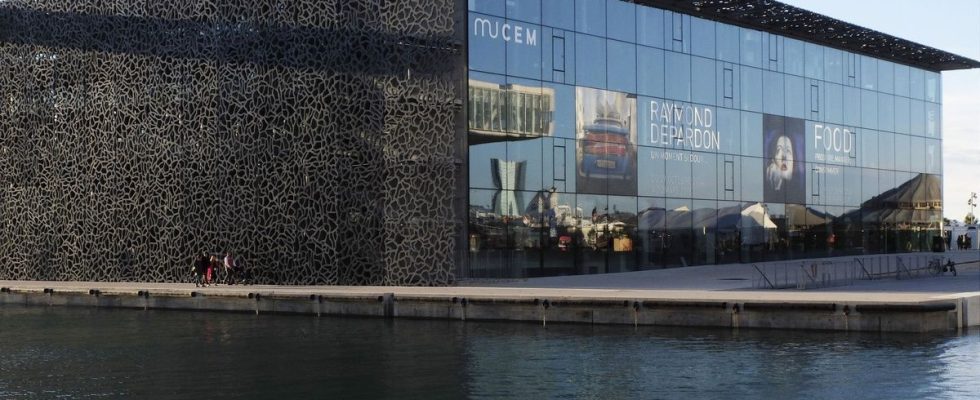Ten years after its opening, the Museum of Civilizations of Europe and the Mediterranean (Mucem) in Marseille is offering a new permanent tour from Wednesday to showcase its collections, with still little-known treasures.
Until now little visible, these are 1,200 objects and documents from the Mucem’s funds which will exhibit the “popular culture” present within its collections: “a strong gesture to address audiences who rarely or not come to the Mucem” and highlight “familiar objects”, such as a simple football or a shepherd’s hut, explains its president Pierre-Olivier Costa. “The collections did not emerge from the sea ten years ago,” recalls Caroline Chenu, in charge of research and collections at the museum, which thus sheds light on its history.
Tense social context
The funds exhibited in the permanent exhibition “Popular? The treasures of the Mucem collections are thus heirs to those of the Museum of Ethnography at the Palais de Trocadéro in Paris (1878-1936) and the Musée de l’Homme and the National Museum of Popular Arts and Traditions, which succeeded it. Divided into eight thematic categories (naturalia, painting, architecture and furniture, sculpture, fashion, ceramics, metal, glass), in rooms with 24 different colors, circus posters and graffiti, wedding jewelry and a blacksmith’s anvil coexist. , carousel figures and snow globe.
The presence of these objects in a museum “restores dignity and value to many invisible people”, estimates Arthur Dreyfus, who, with three other writers – Sophie Blandinières, Lucile Bordes and Guillaume Poix – created around a hundred cartels, with a poetic and personal look at the selected objects rather than a detailed analysis. “It’s a challenge: that the objects themselves have a voice,” explains Amélie Lavin, chief curator at Mucem, responsible for the Body, Appearance and Sexuality division. A final, evolving room will present the museum’s recent acquisitions to the public.
The inauguration of this permanent course, carried out within tight deadlines, recognized Pierre-Olivier Costa, takes place in a tense social context, a few days after a letter from some of the staff to the president denouncing his management. A year after the appointment of this former chief of staff to Brigitte Macron, the letter accuses him of “not having been able to appreciate the suffering at work” of the staff and also deplores “the undermining of the scientific project and of the image of Mucem”.
Explaining that he had inherited a “boat a little adrift”, Pierre-Olivier Costa declared that he was going to “tackle a lot of problems” with the arrival of a new general administrator, Véronique Haché, recently designated.

